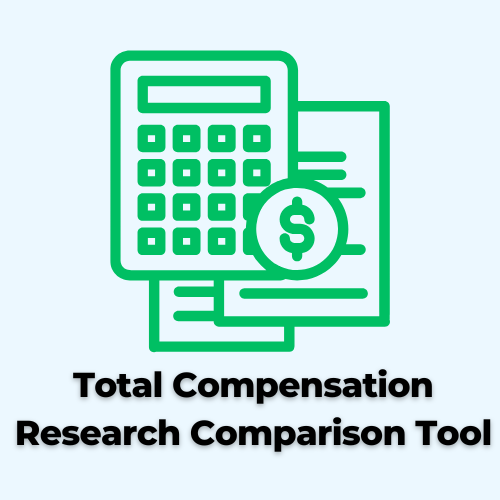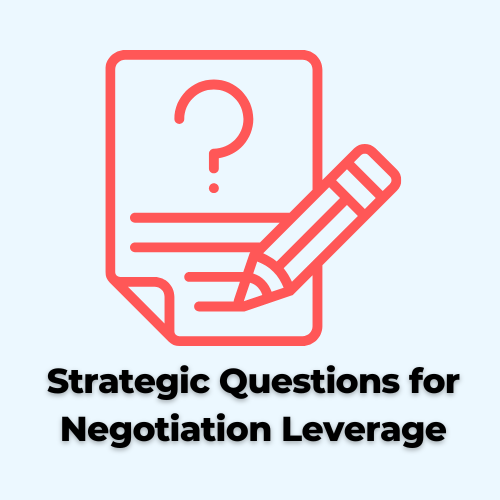Project Manager Salary Negotiation: How to Negotiate a Project Manager Salary
Almost all companies, regardless of their industry, rely on effective project management. Receiving a job offer as a project manager can be incredibly exciting, especially when there’s such a high demand for someone with your specific skills and abilities.
However, before you go ahead and sign that dotted line to accept your offer, you need to consider one last thing: how to negotiate your project manager salary to improve your overall earnings.
Many of the same skills needed for a successful job offer negotiation are ones you already have as a project manager, such as strategic planning, communication, and collaboration with different stakeholders. Negotiating your project management salary is a great way to both highlight these skills and maximize your earnings.
We understand how intimidating negotiating can seem if you’ve never done it before. That’s why we are here to share with you our simple and step-by-step salary negotiation strategies that have helped managers all of the world secure better compensation. With our proven guide and key insights, you’ll be ready to approach your project management salary negotiation with confidence and success.
Want to Negotiate Your Offer? Get offer-specific guidance from a Salary Negotiation Coach. We help project managers negotiate competitive job offers.
Or leverage our Salary Negotiation Courses and Salary Negotiation Templates.
 Job Offer Negotiation Course
Job Offer Negotiation Course
- Get our job offer negotiation strategies, templates, scripts, and guidance.
- Access our step-by-step lessons, compensation research guides, and tools.
- Access Now
 Raise Negotiation Course
Raise Negotiation Course
- Get our raise negotiation strategies, templates, scripts, and guidance.
- Access our step-by-step lessons, compensation research guides, and tools.
- Access Now
Understanding the Compensation Components of a Project Manager Salary
As a project manager, you know how important it is to understand all of the details that go into the successful design and ultimate delivery of a project. Negotiations require that same level of attention to detail.
The most successful negotiations start with a thorough understanding of what’s included in your project manager salary. Even if your project manager offer letter seems great, it’s impossible to know how competitive it really is until you take a closer look at each of its individual elements.
A job offer in project management will be composed of different elements that make up your total yearly compensation. While most job candidates tend to only focus on their base salary, it’s not uncommon for project managers to also be offered an annual performance bonus, initial equity package, sign-on bonus, and other benefits like remote work flexibility.
For example, here is what a Microsoft project manager salary may look like in their initial offer:
Microsoft pm salary
When approaching your negotiation, it’s essential that you evaluate your offer accurately by considering each of the elements of your total compensation—not just your base salary.
In the following section, we will go over some of the most common project management salary components in more detail.
PROJECT MANAGER SALARY
The first component of your job offer to consider is your project manager base salary—which is the fixed guaranteed pay that you receive in exchange for the work you do.
Every project manager role at every company will have a different base pay range associated with it. These ranges will each have set minimum and maximum amounts that dictate what your project manager salary can be.
For example, the base pay range for an entry level project manager salary would be different from the base pay range for a senior project manager salary at the same company. In the same way, the same role could have different base pay ranges across different companies (i.e., a Google project manager salary would differ from a Salesforce project manager salary).
So why does knowing these pay ranges matter? Initial job offers rarely come in at the top of their pay bands, so knowing the base pay range for your specific role at your specific company will give you the knowledge necessary to successfully negotiate your project manager salary to the top end of that range.
PROJECT MANAGER PERFORMANCE BONUS
Many project manager job offers also include an annual performance bonus that is typically a percentage of your base salary. The percentage for a project manager performance bonus is almost always dependent on both company and personal performance, meaning your bonus could go up or down depending on the targets you or your company hit.
Unfortunately, these bonuses are typically non-negotiable at most companies since there is often a set target percentage for each role type and level that cannot be changed. While it’s possible that you or your company could outperform your goals and exceed the target percentages of your annual performance bonus, it isn’t very likely. Instead, it’s best to assume the average bonus payout when evaluating this component of your compensation package.
The good news is that a project manager performance bonus can make a huge difference in your total yearly compensation. And don’t forget that since your bonus is usually a percentage of your base salary, the higher you negotiate your project manager salary, the higher your bonus could be.
PROJECT MANAGER EQUITY PACKAGES
The next element of your job offer to look into is your project manager equity package. Equity is a highly sought-after compensation component in these types of roles, and it is usually negotiable.
As a project manager, you might receive an initial equity grant offered either as RSUs (restricted stock units or restricted stock awards) or stock options. This grant will include a bundle of shares or options that vest over a defined timeframe (i.e., four years), called a vesting schedule.
While it's true that project manager equity can make a huge difference in your total compensation, don’t forget that the value of your equity will fluctuate based on the market value of the company you work for. For example, say you secure an IBM project manager salary offer—you’ll benefit if IBM’s share value goes up, but you’ll take a loss if IBM’s share value goes down. And also keep in mind that if you leave the company before the equity vests, you risk forgoing it all together.
PROJECT MANAGER SIGN-ON BONUS
While it might take some negotiating, most project managers will also receive a sign-on bonus in their job offers.
A project manager sign-on bonus is a one-time bonus. The thought behind a sign-on bonus is that it incentivizes you to accept the offer and it can cover any lost unvested equity at your current job. A sign-on bonus can also help cover relocation costs if you’re moving for your new job.
Since not all companies provide sign-on bonuses in their initial offers, knowing how to negotiate for one is essential. Fortunately, we’ve had countless successes securing large project manager signing bonuses—even when the job seeker wasn’t walking away from money at their current company.
In general, most project manager sign-on bonuses will be paid in one lump sum within the first 30 days of employment. However, you’ll typically need to pay the bonus back if you leave the company within your first year (or other designated timeframe).
Keep in mind, however, that other companies might approach sign-on bonuses differently. For example, an Amazon project manager salary will include sign-on bonuses in year one and year two—which can be paid out monthly instead of in one lump sum payment.
PROJECT MANAGER EQUITY REFRESHER
The next element of your compensation package to consider is your project manager equity refresher.
It’s possible to receive an equity refresher (more stock) in the initial offer for a project management role. However, in most cases, you’ll find that recruiters withhold the stock refresher details. This practice is common for Meta project manager salary offers and other industries that offer this annual equity perk.
During your negotiation, you should politely and professionally ask the hiring team to provide more details about the amount and timeline of the stock refresher for your specific role. However, don’t be surprised if the hiring team refuses to share these specific details. Since it’s often challenging to compare this benefit across different project management job offers, we don’t include this component in our total compensation calculation.
BENEFITS AND PERKS FOR PROJECT MANAGERS
Like any job, benefits and perks for project managers will look different depending on the specific company you work for. A few of the most common benefits that might be included in your compensation package are health insurance, parental leave, or even fitness memberships.
Another popular perk of some project management roles is the ability to work remotely. If this is of interest to you, you should definitely bring it up during the interview process. Unfortunately, most other benefits and perks for project managers are usually non-negotiable. However, in some cases, you might be able to get changes approved via an under-the-table agreement with your future hiring manager (i.e., your manager will be more flexible with your parental leave).
Five Key Steps to Negotiate a PM Salary
Now that you have a solid understanding of some of the most common compensation components of a PM salary, it’s time to outline the steps that you can take to negotiate for an improved project manager job offer.
However, the following negotiation strategies should only be used once you have received an official offer—never before. Based on years of experience helping hundreds of career professionals successfully negotiate their job offers, we’ve found that waiting until you have an actual offer gives you more leverage to negotiate and stops you from making costly mistakes like disclosing your salary expectations to the recruiter too early.
Once you have an offer in hand, you can follow the steps listed below to guide you through the negotiation process. While these are the key steps to a project manager salary negotiation, we strongly recommend project managers work with a Salary Negotiation Coach to guarantee success and get all of our strategies.
1) UNDERSTAND THE COMPONENTS OF A PM SALARY
This first step should be simple since we’ve already completed it together. As a reminder, make sure to review your total PM salary package for a base salary, performance bonus, initial equity grant, sign-on bonus, and any benefits and perks. Understanding the details of your total compensation is key to a successful negotiation.
If needed, you can also use our Total Compensation Calculator to help you calculate your compensation components accurately.

- Understand Total Compensation – Use our tool to break down and calculate the compensation in your job offer.
- Research & Compare Offers – Organize your compensation research and determine the right counter amount.
- Get Here
2) COMPLETE DUE DILIGENCE ON YOUR PROJECT MANAGER JOB OFFER BY ASKING THE RIGHT QUESTIONS
Once you understand the ins and outs of your total compensation package, the next step is to ask strategic questions that can help inform your counteroffer.
Start by asking the recruiting team for clarity on any items that they may have been vague about (i.e., What is the expected equity refresher each year for this role?). The answers to these types of questions will give you important data points you can use in your counteroffer. Asking the right questions also communicates to the recruiting team that you are serious about the project manager job offer.
We suggest starting this phase of the negotiation right after you receive your job offer. If you’re not sure what to ask, you can use our list of Strategic Questions to Build Negotiation Leverage.

- Build Negotiation Leverage – Ask the right questions to strengthen your negotiation before sending a counter.
- Email & Phone Scripts – Get our list of questions to ask and what to say if the recruiter wants to chat through them.
- Get Here
3) RESEARCH TO IDENTIFY WHAT PROJECT MANAGER SALARY SHOULD LOOK LIKE
One of the most important steps in any negotiation is to conduct thorough salary research. The salaries for project managers will vary by company, so you will need to spend some time researching project manager salary ranges specific to your role type and level to help you understand the strength of your current offer and how much you should counter for.
There are many online resources you can use in your research, such as Built In or Comparably. However, keep in mind that ranges on these types of sites are publicly reported by current or past employees—so the salaries they indicate could be different from what is now offered to new employees. Comparing pay data across multiple sites can help you pull together the most accurate information.
When looking at pay data for any job, never forget that if you’re offered a specific role, you’ll ultimately be expected to manage the same responsibilities as anyone hired for that same position. So regardless of your experience or background, you should push for at least the mid- to top-end of the total pay range for your specific project management role. You can use our Total Compensation Research Comparison Tool to help you with your compensation research and identify the pay ranges.

- Understand Total Compensation – Use our tool to break down and calculate the compensation in your job offer.
- Research & Compare Offers – Organize your compensation research and determine the right counter amount.
- Get Here
4) SEND A PROJECT MANAGER COUNTEROFFER TO THE RECRUITER
Now comes the step you’ve been waiting for—sending over an official project management counteroffer.
By following the first three steps above, you should be ready to present your counteroffer to the recruiter by referencing the pay range data you’ve researched and how the benefits in your offer differ from other companies and/or your current role.
In our experience, presenting your counter via email is almost always better than countering over the phone. Drafting an email gives you the time and freedom to write exactly what you want to say. And sending your counteroffer in writing also gives the recruiter something they can easily forward on and share internally with their team.
As always, present your counteroffer kindly and professionally. This is an opportunity to showcase what you’re like to work alongside. To ensure proper communication, use our Counteroffer Drafts for examples to help you formulate a strategic counteroffer.

- Proven Counteroffer Templates – Built from hundreds of successful job offer negotiations.
- Negotiate with Confidence – Remove the guesswork with our professionally crafted counteroffers.
- Get Here
5) HANDLE ANY OBJECTIONS AND KNOW YOU ACHIEVED THE BEST PM SALARY
It might only take one counteroffer and the hiring team will respond with an updated offer package. However, in most cases, be prepared for them to come back to you with a list of reasons why they can’t make any increases to the PM salary.
If this happens, respond graciously by stating you understand their constraints, but that you would really appreciate it if they could take your counter back to their team for one last look. You should still ask even if they insist their team will just say no and continue to follow our Objection Handling Scripts.

- Overcome Recruiter Pushback – Proven scripts to handle pushback and keep your salary negotiation on track.
- Communicate Effectively – Use expert responses to get recruiters to advocate for you with the compensation team.
- Get Here
Once they agree to take your thoughts back to their team, they should return with a better offer. If the new compensation package aligns with the pay ranges you researched and meets your needs, you should be ready to send an offer acceptance email.

- Accept or Decline – Expert crafted job offer acceptance email and rejection email templates to share your decision.
- Professional & Genuine Tone – These help you communicate in a professional manner regardless of what you decide.
- Get Here
Congratulations on your successful project manager job offer negotiation!
Mistakes to Avoid During a Project Manager Salary Negotiation
Now that we’ve covered what you should do during your project manager salary negotiation, we are going to finish by quickly outlining a few things you shouldn’t do.
There are a few common mistakes job seekers make during the negotiation process. Below we’ve listed some of the top things you should make sure to avoid when you negotiate your project management salary.
AVOID SHARING SALARY EXPECTATIONS BEFORE GETting JOB OFFER IN PROJECT MANAGEMENT
Many job seekers aren’t aware that sharing salary expectations before you receive an offer often works against you.
Here’s why: If you share a lower salary expectation than what the company could offer, they will be incentivized to now offer you that lower compensation. On the flip side, if you share a number higher than what they could offer, there is a chance that they could become disinterested and choose a different candidate over you.
Remember—recruiting teams are working for the company, not you. Their ultimate goal is to get the best deal for that company.
It also doesn’t make much sense to discuss your salary expectations before you learn more about the specific project management role, its total compensation package, and whether those things feel like a good fit for you. Don’t forget that you’re also interviewing them to see if the role is right for you so be sure to overcome these tactics by responding like this.

- Salary Expectation Responses – Scripts to overcome recruiter salary expectation discussions and pre offer calls.
- Avoid Lowballing Yourself – These call scripts and email templates will help you get a competitive offer.
- Get Here
DON'T BE AFRAID TO NEGOTIATE A PROJECT MANAGER JOB OFFER
Even though it could mean increasing their total career earnings, many job candidates end up not negotiating out of fear. They’re often scared of offending the recruiting team or losing the job offer altogether. However, you’ll be encouraged to know that we’ve helped facilitate hundreds of successful salary negotiations and we’ve never seen a company rescind a project manager job offer because of an attempted negotiation. It's usually expected, regardless of the role level—whether it’s an IC role, manager of project management salary, director of project management salary, or a VP project management salary—you should negotiate. Don’t let salary negotiation myths keep you from negotiating for a better salary.
BE REALISTIC BY DOING YOUR PROJECT MANAGEMENT SALARY RESEARCH
Like we mentioned earlier, project managers are needed in almost every industry. However, even though these positions are in high demand and pay well, you should still be realistic about what compensation you ask for.
Make sure that you do your due diligence when researching pay data so that you only push for compensation that the company can realistically provide. For example, the compensation package that makes up a Nvidia project manager salary might look different than the compensation makeup of a TikTok project manager salary.
Project Manager Salary Negotiation Coaching & Tools
Increasing project manager compensation requires a deep understanding of the company’s compensation philosophy and the right salary negotiation strategy. Our expert Salary Negotiation Coaching will help you navigate the project manager salary negotiation process and secure the top end of the pay band.
Or leverage our Salary Negotiation Courses and Salary Negotiation Scripts.
 Job Offer Negotiation Course
Job Offer Negotiation Course
- Get our job offer negotiation strategies, templates, scripts, and guidance.
- Access our step-by-step lessons, compensation research guides, and tools.
- Access Now
 Raise Negotiation Course
Raise Negotiation Course
- Get our raise negotiation strategies, templates, scripts, and guidance.
- Access our step-by-step lessons, compensation research guides, and tools.
- Access Now



